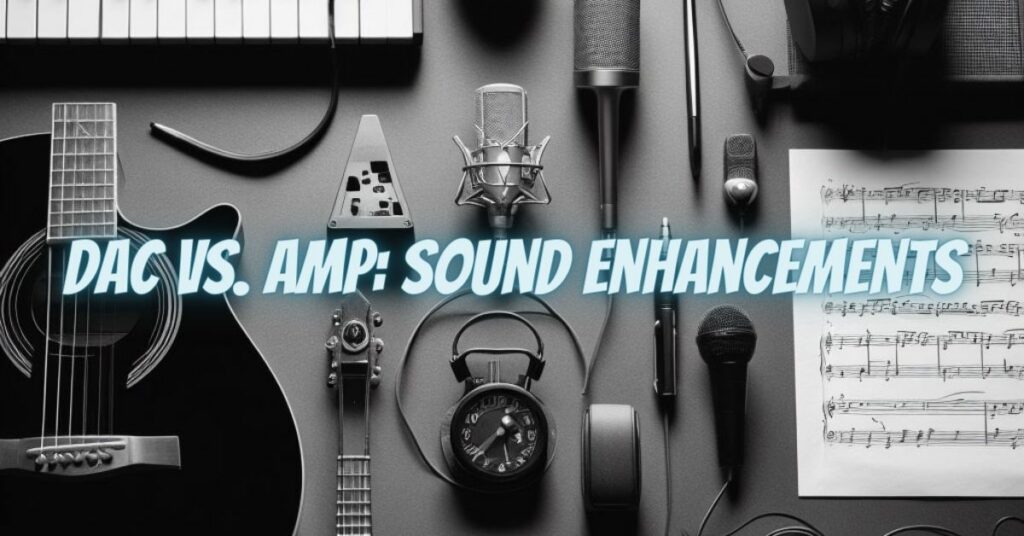In the world of high-quality audio, two critical components often come into focus: the Digital-to-Analog Converter (DAC) and the Amplifier (amp). These components play distinct yet interconnected roles in delivering excellent sound quality. But when it comes to the age-old debate of “DAC vs. Amp,” which one is better? In this article, we will explore the functions of DACs and amps, their roles in audio reproduction, and when one might be more essential than the other.
The Digital-to-Analog Converter (DAC)
A DAC is a crucial component in the audio chain, especially in today’s digital age. Its primary function is to convert digital audio signals, such as those from a computer or a CD player, into analog signals that can be played through speakers or headphones. This conversion is necessary because most audio sources produce digital signals, but speakers and headphones require analog signals to produce sound.
Key Features and Considerations of a DAC:
- Signal Precision: A high-quality DAC can significantly impact audio quality by accurately converting digital signals into analog without introducing distortion or noise.
- Bit Depth and Sample Rate: The bit depth and sample rate supported by a DAC affect its ability to reproduce audio with high fidelity. Higher bit depths and sample rates generally result in better sound quality.
- Connection Options: DACs can be connected to various devices, including computers, smartphones, CD players, and more. The choice of connection method can influence sound quality.
- Portable DACs: Some DACs are designed to be portable and can enhance the sound quality of mobile devices, making them ideal for audiophiles on the go.
The Amplifier (Amp)
An amplifier, or amp, serves a different purpose in the audio chain. Its primary role is to increase the strength or amplitude of an audio signal, making it powerful enough to drive speakers or headphones. Without an amplifier, audio signals might be too weak to produce audible sound.
Key Features and Considerations of an Amp:
- Power Output: Amplifiers come in a range of power outputs, measured in watts. The power output should match the requirements of the speakers or headphones to achieve the best sound quality.
- Headphone Amps: Some amplifiers are designed specifically for headphones and can enhance their performance, particularly for high-impedance headphones.
- Sound Signature: Different amplifiers can have varying sound signatures, influencing the tonal qualities of audio. Some audiophiles may prefer tube amplifiers for their warm sound, while others opt for solid-state amplifiers for accuracy.
When is a DAC Essential?
- Digital Sources: If you frequently use digital audio sources like a computer, CD player, or streaming device, a high-quality DAC can significantly improve sound quality by ensuring accurate digital-to-analog conversion.
- High-Resolution Audio: Audiophiles who enjoy high-resolution audio files with bit depths and sample rates exceeding the standard 16-bit/44.1kHz may benefit from a DAC capable of handling these formats.
When is an Amp Essential?
- Speaker or Headphone Impedance: High-impedance headphones or speakers often require more power to deliver optimal sound quality. In such cases, an amplifier is essential to provide the necessary power.
- Sound Preferences: If you prefer a particular sound signature or want to fine-tune the tonal qualities of your audio, choosing the right amplifier can help you achieve your desired sound.
In the debate of “DAC vs. Amp,” there is no clear winner, as these two components serve distinct yet interconnected roles in achieving high-quality audio. A DAC is essential for converting digital audio signals into analog, ensuring precision and fidelity, while an amp is crucial for amplifying the audio signal to drive speakers or headphones effectively.
To achieve the best audio quality, it’s often recommended to use both a DAC and an amplifier in your audio setup. However, the specific need for one over the other depends on your audio sources, equipment, and personal sound preferences. Ultimately, the choice between a DAC and an amp should be based on your unique audio setup and your goals for audio quality and enjoyment,


